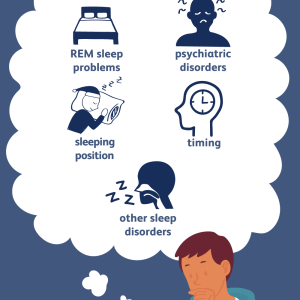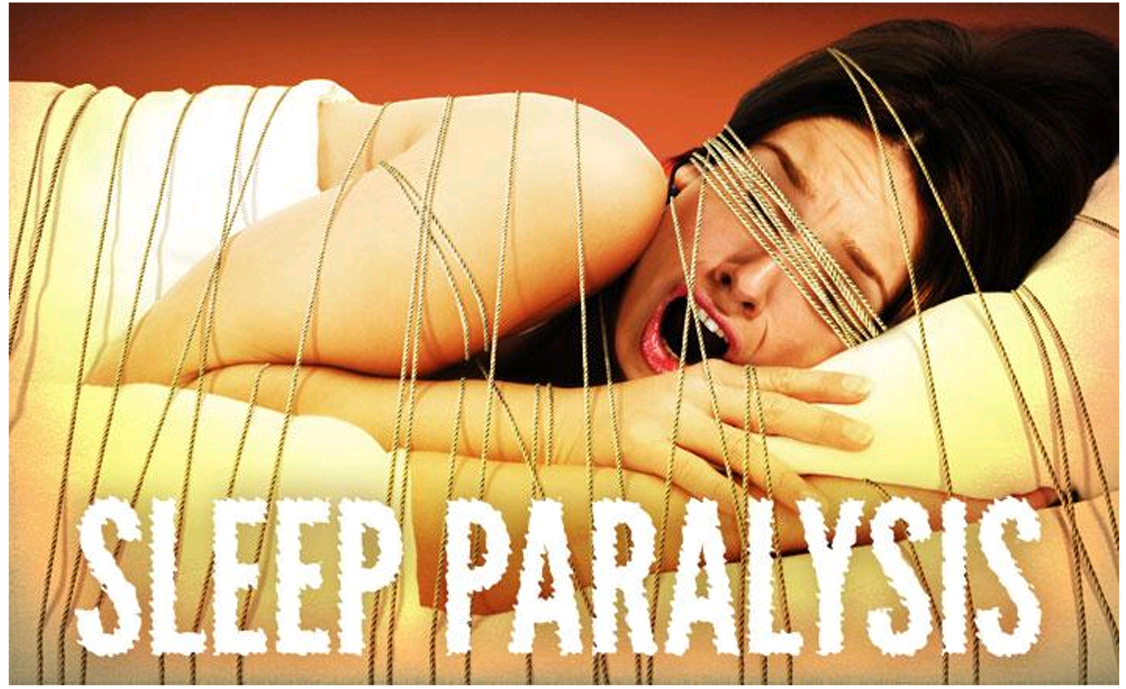Introduction
Sleep paralysis is a phenomenon that affects millions of people worldwide, leaving them unable to move or speak while falling asleep or waking up. It’s a terrifying experience that can leave individuals feeling helpless and frightened. Understanding what causes sleep paralysis and how to treat it is crucial for those who suffer from it. In this comprehensive guide, we’ll delve deep into the intricacies of sleep paralysis, its symptoms, causes, and most importantly, effective treatment options.
What is Sleep Paralysis?
Sleep paralysis is a temporary inability to move or speak that occurs when falling asleep or waking up. During sleep paralysis, the individual is fully conscious but unable to move their muscles voluntarily. It often occurs alongside hallucinations, which can be visual, auditory, or tactile, further intensifying the feeling of helplessness.
Symptoms of Sleep Paralysis
- Inability to Move: The primary symptom of sleep paralysis is the inability to move the body, despite being fully conscious.
- Hallucinations: Individuals may experience vivid hallucinations, often of a frightening nature.
- Breathing Difficulties: Some people report feeling pressure on their chest, making it difficult to breathe.
- Fear and Anxiety: Sleep paralysis can induce intense feelings of fear and anxiety due to the perceived loss of control. Explore More About (Swelling Ankles)

Causes of Sleep Paralysis
While the exact cause of sleep paralysis is not fully understood, several factors are believed to contribute to its occurrence:
- Disrupted Sleep Patterns: Irregular sleep schedules or insufficient sleep can increase the likelihood of experiencing sleep paralysis.
- Sleep Disorders: Conditions such as narcolepsy or insomnia are associated with a higher risk of sleep paralysis.
- Stress and Anxiety: High levels of stress and anxiety can trigger episodes of sleep paralysis.
- Sleeping Position: Sleeping on one’s back is often linked to an increased risk of sleep paralysis episodes.
Treatment Options
Although sleep paralysis can be a frightening experience, several treatment options can help manage and reduce its occurrence:
- Improving Sleep Hygiene: Establishing a consistent sleep schedule and creating a relaxing bedtime routine can help promote better sleep quality and reduce the risk of sleep paralysis.
- Stress Management: Techniques such as mindfulness meditation, deep breathing exercises, and progressive muscle relaxation can help reduce stress and anxiety levels, decreasing the likelihood of experiencing sleep paralysis.
- Medication: In some cases, doctors may prescribe medications such as antidepressants or selective serotonin reuptake inhibitors (SSRIs) to help manage sleep paralysis symptoms.
- Treating Underlying Sleep Disorders: Addressing underlying sleep disorders, such as narcolepsy or obstructive sleep apnea, can also help reduce the frequency of sleep paralysis episodes.
Preventing Sleep Paralysis
While it may not be possible to completely prevent sleep paralysis, certain lifestyle changes and strategies can help reduce its occurrence:
- Maintain a Regular Sleep Schedule: Going to bed and waking up at the same time every day can help regulate your sleep-wake cycle, reducing the risk of sleep paralysis.
- Create a Relaxing Sleep Environment: Make your bedroom conducive to sleep by keeping it dark, quiet, and cool. Avoid screens and stimulating activities before bedtime.
- Practice Stress Reduction Techniques: Incorporate stress-reducing activities into your daily routine, such as yoga, meditation, or deep breathing exercises.
- Avoid Stimulants Before Bed: Limit your consumption of caffeine and alcohol, especially in the hours leading up to bedtime, as they can disrupt sleep patterns and increase the likelihood of sleep paralysis.

Treatment Options for Sleep Paralysis
| Treatment Option | Description |
|---|---|
| Improving Sleep Hygiene | Establishing a consistent sleep schedule and creating a relaxing bedtime routine. |
| Stress Management | Techniques such as mindfulness meditation, deep breathing exercises, and progressive muscle relaxation to reduce stress and anxiety levels. |
| Medication | Prescription of antidepressants or selective serotonin reuptake inhibitors (SSRIs) by healthcare professionals to manage sleep paralysis symptoms. |
| Treating Underlying Sleep Disorders | Addressing conditions like narcolepsy or obstructive sleep apnea, which may contribute to sleep paralysis. |
Conclusion
Sleep paralysis is a frightening phenomenon that can leave individuals feeling helpless and anxious. By understanding its causes and symptoms, as well as implementing effective treatment and prevention strategies, it is possible to manage and reduce the occurrence of sleep paralysis episodes. If you or someone you know is experiencing frequent sleep paralysis episodes, it is essential to consult with a healthcare professional for proper evaluation and guidance.
In conclusion, sleep paralysis is a challenging experience, but with the right knowledge and support, it can be managed effectively. By prioritizing sleep hygiene, stress management, and seeking appropriate medical treatment when necessary, individuals can regain control over their sleep and overall well-being.
Remember, you’re not alone in this journey. Reach out to healthcare professionals, support groups, or loved ones for assistance and guidance. With perseverance and determination, sleep paralysis can be overcome, allowing you to enjoy restful and peaceful nights once again.




